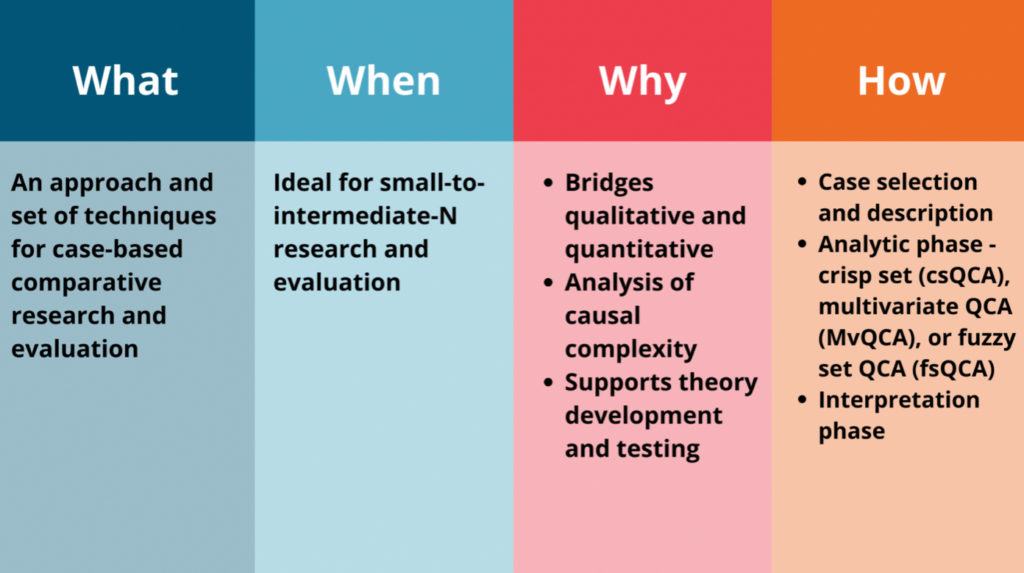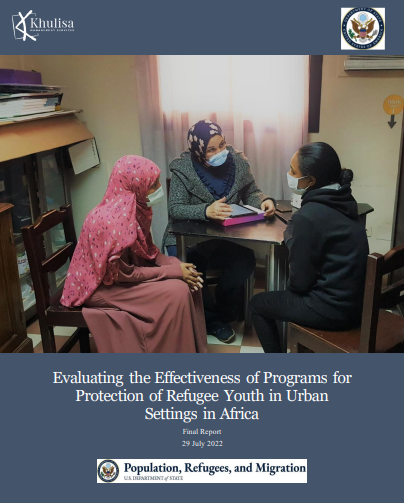Part 4 in a multi-part series about analytical methods used in evaluations. All of the methods featured in this series appear in The Magenta Book Annex A.
Last year we were inspired by The Magenta Book, the U.K. government’s comprehensive “guidance on what to consider when designing an evaluation”, to feature a series of #EvalTuesdayTips about analytical methods and how they work best in an evaluation. To kick off the new year, we’re revisiting qualitative comparative analysis (QCA), another useful analytical method described in the Magenta Book.
QCA is both a qualitative and quantitative method that uses the logic of Boolean Algebra to determine which combination of conditions are necessary, sufficient, or both for an outcome to occur or not occur. According to the Magenta Book: “QCA is a pragmatic method to compare different aspects of an intervention and contextual factors to understand the different characteristics or combinations of characteristics which are associated with outcomes. It enables systematic comparison based on qualitative knowledge.”
As explained in this blog post about QCA by ARTD Consultants, QCA is particularly useful for small evaluations because it combines qualitative and quantitative research to determine causal relationships.

The What, When, Why, and How of QCA. From “Everything You Wanted to Know about Qualitative Comparative Analysis but Were too Afraid to Ask,” by ARTD Consultants.
QCA is gaining in popularity in the evaluation field, and Khulisa is looking to use this methodology more often in 2023 and beyond. For more background on QCA, read this previous #EvalTuesdayTip from March 2022
Are you interested in learning more about the variety of analytical methods used in evaluations? Browse them all in The Magenta Book Annex A.


